| |
| |
| |
| Presented By Google |
| |
| Axios AM |
| By Mike Allen ·May 11, 2021 |
| ☕ Good Tuesday morning. Smart Brevity™ count: 1,177 words ... 4½ minutes. Edited by Zachary Basu. |
| |
| |
| 1 big thing: Ransomware pandemic |
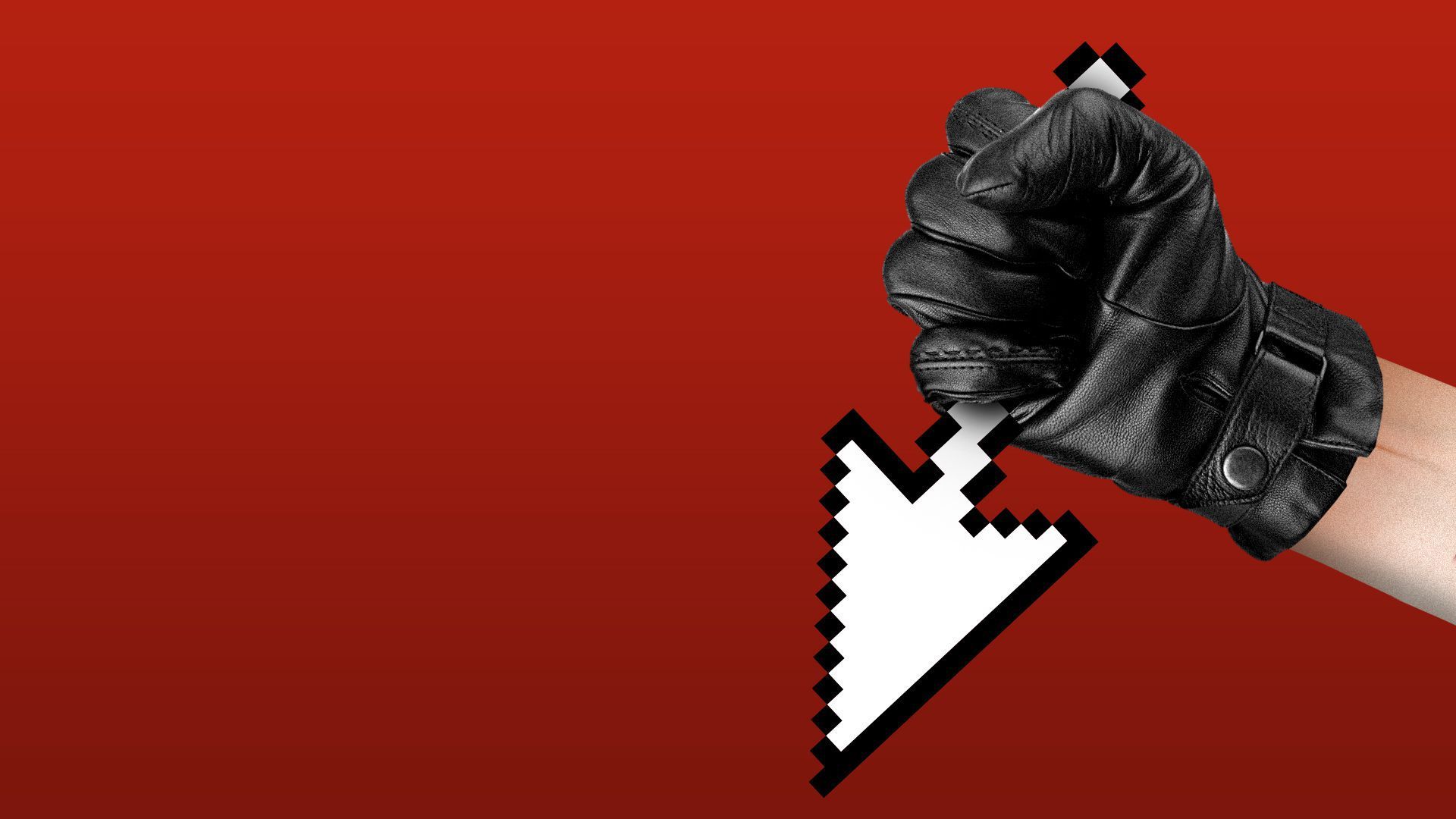 |
|
| Illustration: Aïda Amer/Axios |
| |
| Crippling a major U.S. oil pipeline initially looked like an act of war — but it's now looking like an increasingly normal crime, bought off-the-shelf from a "ransomware as a service" provider known as DarkSide, Axios' Felix Salmon and Ina Fried report. - "We are on the cusp of a global pandemic," Chris Krebs, former head of Homeland Security's cyber agency, told Congress last week, "driven by greed, an avoidably vulnerable digital ecosystem, and an ever-widening criminal enterprise."
Why it matters: No company is safe from ransomware, and the lines between criminals and state actors are often fuzzy. - Preventing even bigger future attacks will require more coordination among dozens — if not hundreds — of countries.
Threat level: Very high. "Cybersecurity will be the issue of this decade in terms of how much worse it is going to get," IBM CEO Arvind Krishna told reporters yesterday. Companies' main strategy right now is to pay up if hit — and to try to be slightly less vulnerable to attacks than their competitors, Forrester analyst Allie Mellen says: - "What do security pros do right now to lower their risk in the face of future ransomware attacks? Outrun the guy next to you."
What's next: The fight will require a major upgrade of systems at the state and local level, very few of which have been migrated to cloud-based systems that can try to keep one step ahead of the bad guys. |
    |
| |
| |
| 2. Parents are pivotal for teen vaccines |
 |
|
| Illustration: Eniola Odetunde/Axios |
| |
| About 17 million teens aged 12 to 15 will be eligible for the Pfizer vaccine in the coming days — if health officials can get parents on board, Axios' Marisa Fernandez writes. Parents split 50-50 on whether they'll allow their children to get vaccinated as soon as possible, according to a new Axios/Ipsos poll. - "We will need parent buy-in," said Donna Halles, a pediatrician and director of NYU's pediatric nurse practitioner program.
Share this story. |
    |
| |
| |
| 3. Va. gov race: Macker vs. former private-equity CEO |
| Glenn Youngkin worked a line of cars in Annandale, Va., on Saturday as the state GOP held a drive-thru primary. Photo: Bill O'Leary/The Washington Post via Getty Images At 10 p.m., Virginia Republicans acknowledged Glenn Youngkin, 54 — a pro-Trump, first-time candidate who campaigned as a Christian outsider — as their nominee to take on Terry McAuliffe in this year's only open-seat governor's race. - Youngkin retired last year as co-CEO of The Carlyle Group, the private-equity firm co-founded by David Rubenstein.
Youngkin didn't acknowledge President Biden's electoral win and made "election integrity" a centerpiece of his campaign, per the WashPost. The big picture: In a field of seven, Youngkin beat the two candidates who most closely aligned with Donald Trump — who didn't endorse anyone — giving the GOP hope for November, the N.Y. Times reports. - Republicans haven't won the Virginia Executive Mansion since 2009.
|
    |
| |
| |
| A message from Google |
| Google is helping American small businesses adapt and grow |
| |
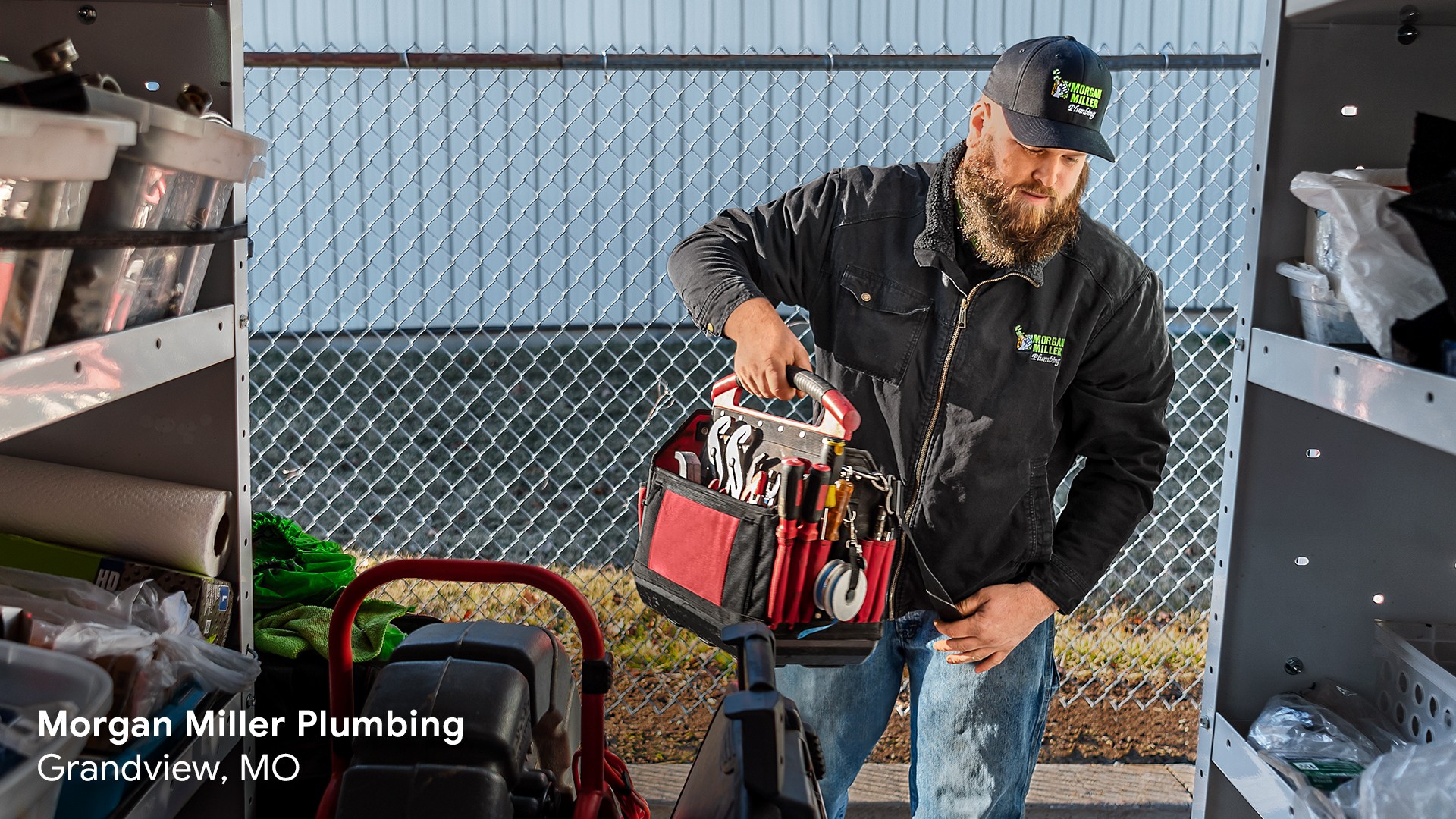 |
| |
| In 2020, more than 17 million American businesses received phone calls, requests for directions, messages, bookings, reviews, and other direct connections to their customers from Google. Find out more in the 2020 Economic Impact Report. |
| |
| |
| 4. Summer-school frenzy |
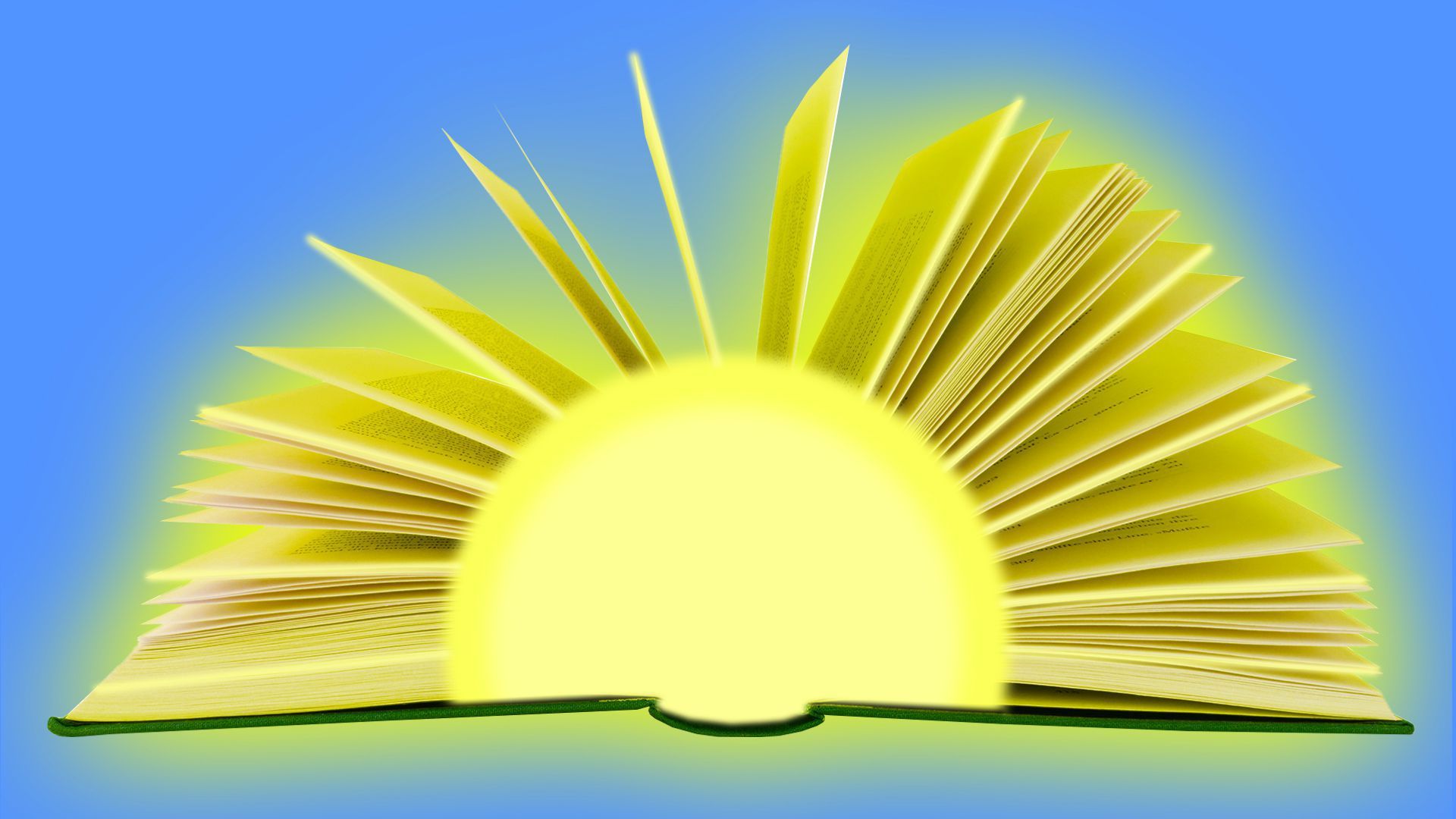 |
|
| Illustration: Annelise Capossela/Axios |
| |
| Kids across the country are using summer school to catch up after more than a year of interrupted, unstable and inequitable virtual school, Axios' Erica Pandey writes. - But kids are demoralized and teachers are exhausted: It'll take more than one summer to fix pandemic damage.
Districts all over the U.S. are preparing for an influx of students. $30 billion in the latest COVID relief package was allocated for after-school and summer programs. - New York City is making summer school available to all students, and the city expects around 190,000 to attend, compared with the 115,000 who are typically required to attend for remedial learning, Chalkbeat reports.
Shocking estimate: American students from kindergarten to fifth grade have missed out on 20% of the reading and 33% of the math skills they would have learned in normal times, according to a McKinsey report. What's next: Districts should think about catching students up as a multi-year process, says Aaron Dworkin, CEO of the National Summer Learning Association, a nonprofit that promotes summer programs. - The federal money lasts until 2023. If students are burnt out and not ready for academics this summer, they can get involved in the arts or sports to start, he says.
Share this story. |
    |
| |
| |
| 5. Axios-Ipsos poll: "Normal" is in sight |
 Data: Axios/Ipsos Poll (3.2% margin of error). Chart: Axios Visuals For the first time since the pandemic began, fewer than half of Americans (43%) see returning to their "normal" pre-coronavirus lives as risky, Margaret Talev writes from the Axios/Ipsos Coronavirus Index. - This tipping point comes as nearly two thirds of respondents in our weekly national poll say they've gotten at least one shot.
Democrats are still much more likely than Republicans to say they're wearing masks. - 54% of Americans said they've gone out to eat — the first time that figure has passed 50% since we began asking the question a year ago.
Keep reading. |
    |
| |
| |
| 6. Hollywood wakeup call |
 |
|
| Illustration: Sarah Grillo/Axios |
| |
| Decades of failures on diversity and inclusion caught up with Hollywood yesterday, when NBC made the stunning decision to skip the Golden Globes next year, Axios Media Trends expert Sara Fischer writes. - NBC has aired the Globes exclusively for decades. The decision to pull back shows how big the backlash has grown against the Hollywood Foreign Press Association, which stages the event.
Leaders at Amazon, Netflix and WarnerMedia put out statements saying they refuse to work with the HFPA until reforms are enacted. Stars, including Scarlett Johansson and Mark Ruffalo, denounced the group. - Ahead of this year's Globes, the L.A. Times revealed in February that not a single HFPA member is Black.
The big picture: Hollywood is facing a slew of unprecedented business and cultural challenges following the pandemic and the Black Lives Matter protests last year. - A collapse in ratings for the industry's beloved award shows, and a slow recovery at the box office this year, show how much streaming has taken over the industry.
- With streamers gaining power, more attention has been brought to shortcomings in diversity and inclusion.
The bottom line: Hollywood shut down in 2020, only to reemerge upside down in 2021. |
    |
| |
| |
| 7. China's "long-term time bomb" |
 |
|
| A woman plays with a child as elders sunbathe in Beijing yesterday. Photo: Andy Wong/AP |
| |
| A census released in Beijing this morning showed that the number working-age people in China fell over the past decade as growth dropped to near zero, adding to economic challenges for Chinese leaders. - The total population rose to 1.411 billion people last year in the once-a-decade census, up 72 million from 2010, AP reports.
"China is facing a unique demographic challenge that is the most urgent and severe in the world," Liang Jianzhang, a Peking University demography expert told the N.Y. Times. "This is a long-term time bomb." - "Beijing is now under greater pressure," The Times writes, "to abandon its family planning policies, which are among the world's most intrusive; overhaul an economic model that has long relied on a huge population and a growing pool of workers; and plug yawning gaps in health care and pensions."
|
    |
| |
| |
| 8. A break from toasty records |
 Data: NASA. Chart: Andrew Witherspoon/Axios With a moderate La Niña in the Pacific Ocean, this year's global temperatures are running decidedly cooler than in recent years, Andrew Freedman writes in Axios Generate. - Why it matters: The lack of a new "warmest year" record could sap urgency among policymakers.
|
    |
| |
| |
| 9. "Earth monitoring": The satellite knows |
 |
|
| Illustration: Sarah Grillo/Axios |
| |
| Satellites are ushering in a new era of environmental accountability, Andrew Freedman writes. - A new project called Flaring Monitor — shared exclusively with Axios — uses an automated process to track flares emitted by companies burning off extra natural gas.
- A study published last year used satellite data to find patterns in fishing vessels that could be signs of forced labor at sea.
Why it matters: Environmental agreements are hard to enforce without independently verified data. But satellites can spot deforestation, illegal fishing and pollution. - "We are going to have a time of radical climate transparency," said Andrew Zolli, V.P. of global impact initiatives at the satellite company Planet.
Keep reading. |
    |
| |
| |
| 10. 🎸 1 Bob thing: Record Dylan artfest |
| Photo: Bob Dylan via AP Bob Dylan, who turns 80 on May 24, painted "New York Subways" (above) in 2020. The largest-ever collection of Dylan artwork goes on display late this year in a six-decade "Retrospectum" featuring 120 paintings, drawings and sculptures by the folk singer and Nobel laureate, AP reports. - "Retrospectrum" debuts in Miami on Nov. 30 at the Patricia & Phillip Frost Art Museum at Florida International University, and runs through April 17, 2022. No other stop has been announced.
Photo: Bob Dylan via Frost Art Museum "Sunset, Monument Valley," painted by Bob Dylan in 2019. |
    |
| |
| |
| A message from Google |
| Havana Carolina is using Google tools to adapt |
| |
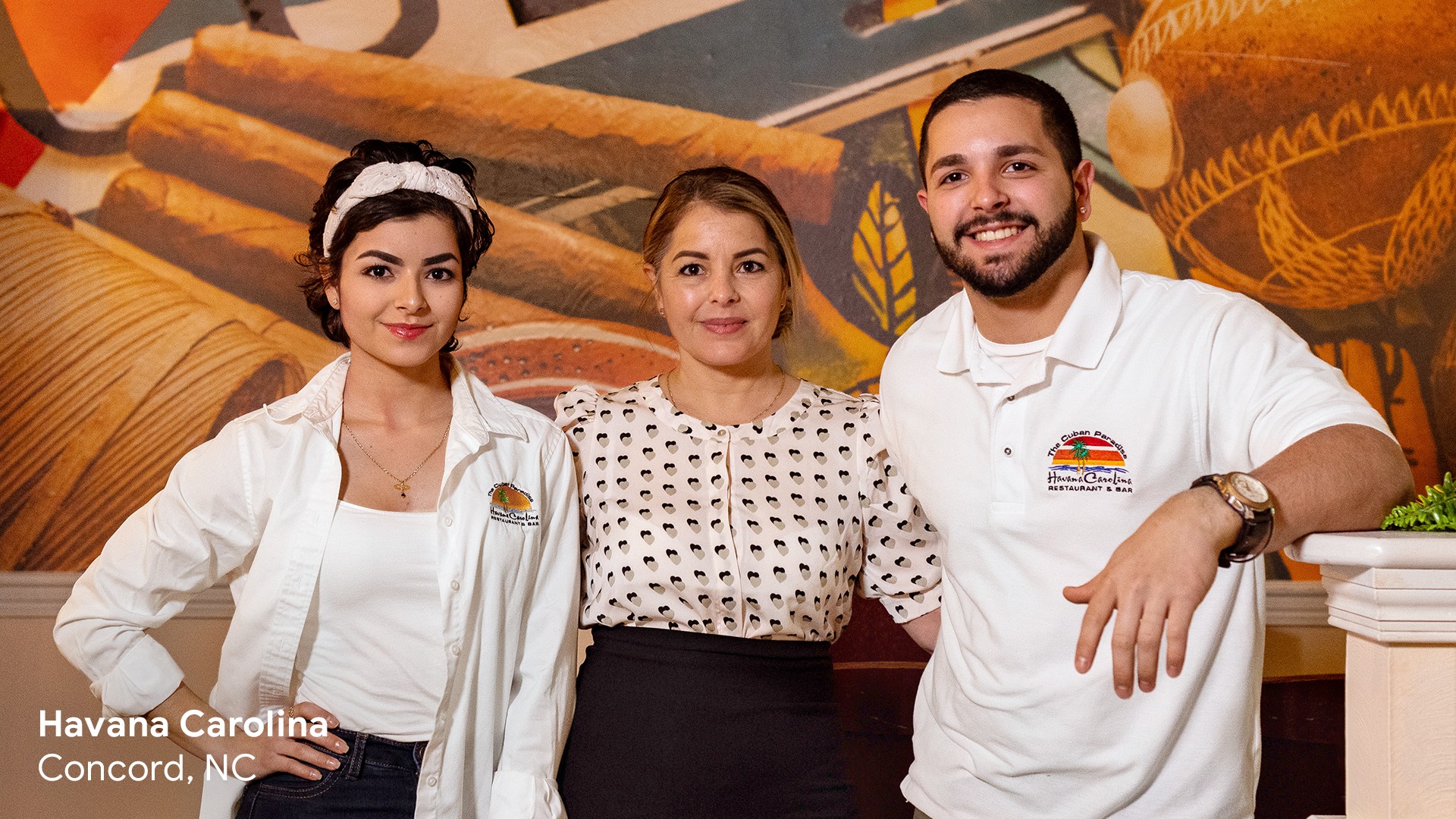 |
| |
| Havana Carolina has been serving up a taste of Cuba to Concord, North Carolina locals since 2015. When the pandemic hit, they updated their Business Profile on Google to focus on takeout and delivery, and their loyal customers showed up. Explore stories from small businesses in every state. |
| |
| 📬 Please invite your friends, family, colleagues to sign up here for Axios AM and Axios PM. |





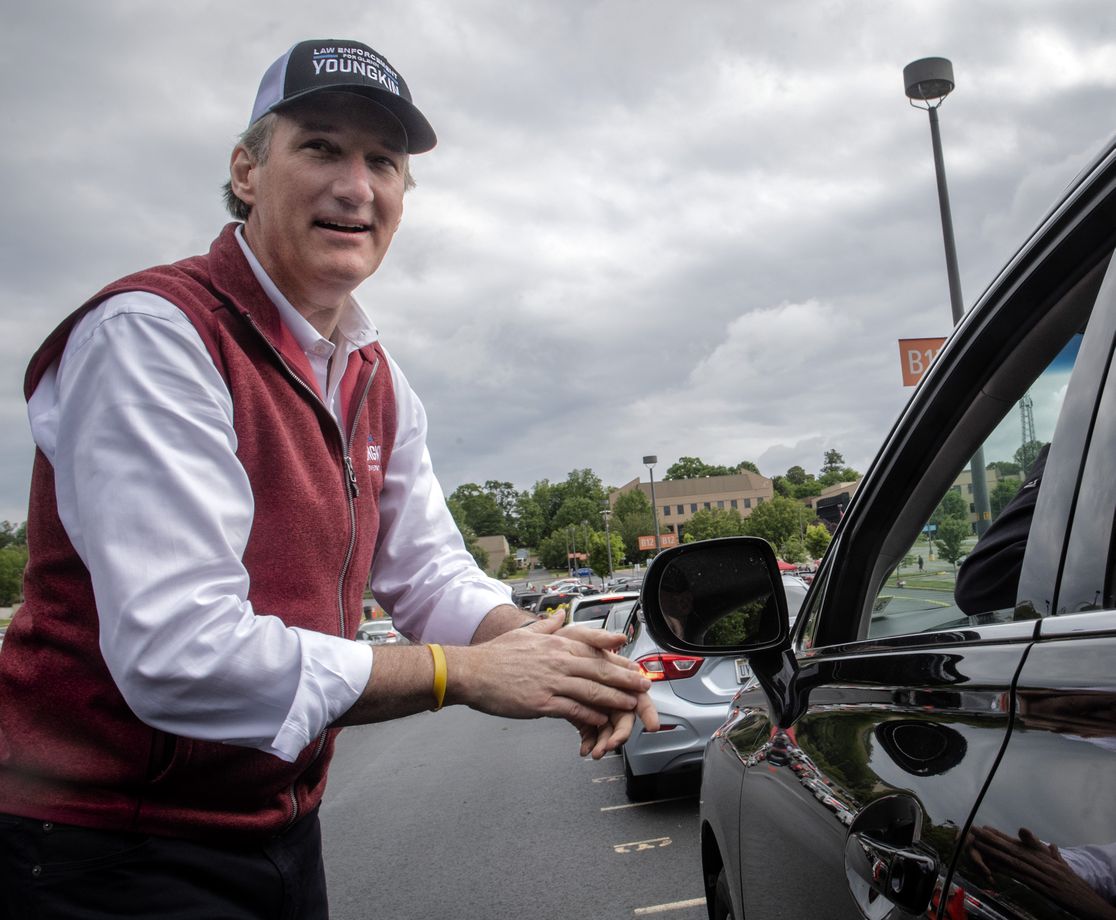






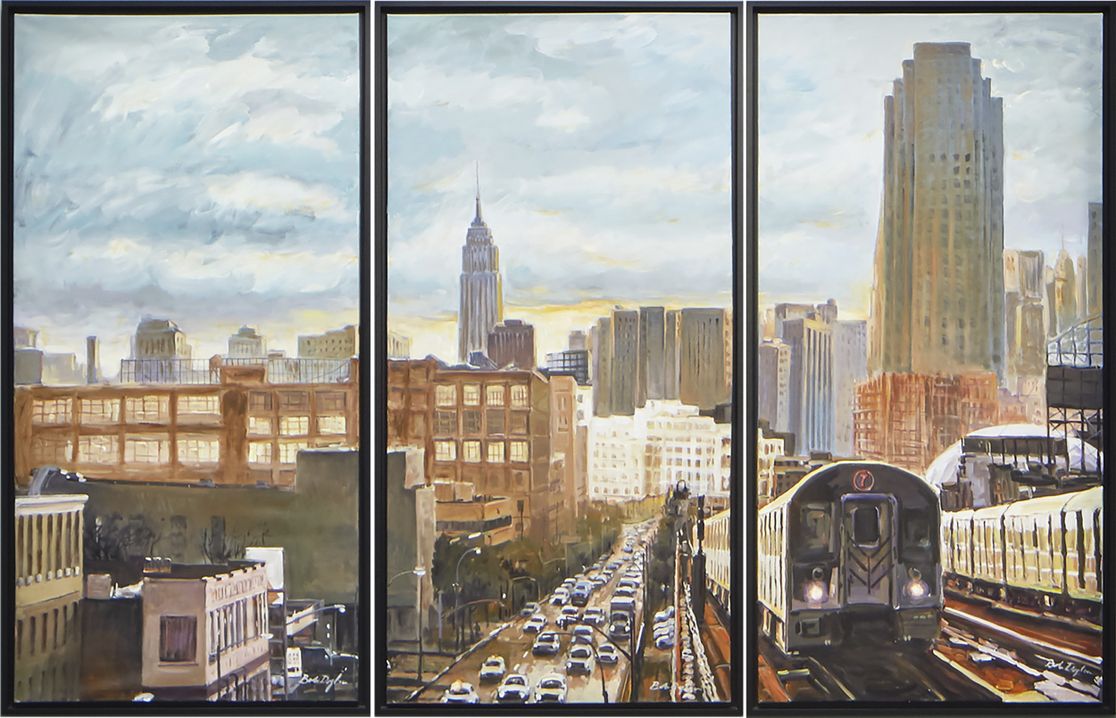

No comments:
Post a Comment